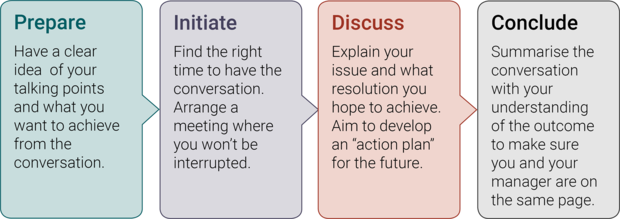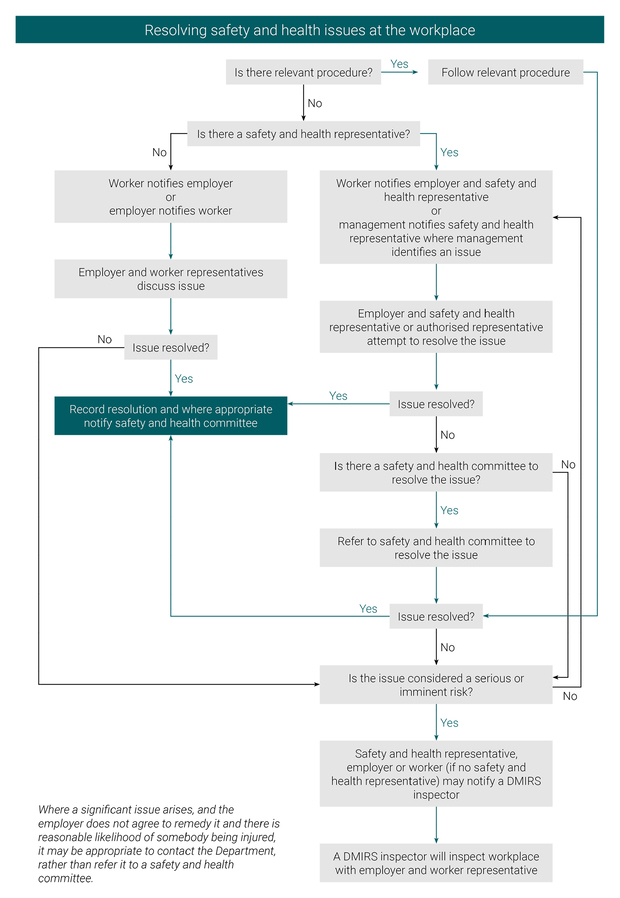On 31 March 2022, the Work Health and Safety (WHS) laws replaced the health and safety elements of the Mines Safety and Inspection laws. For information visit www.demirs.wa.gov.au/whs
All health and safety notifications, forms and guidance for mining and petroleum has moved to the WorkSafe website
The information below has been left for historical compliance reference purposes

How can I raise concerns about workplace mental health?
Identifying and reporting physical hazards in the workplace is a critical part of keeping your workplace safe. You can apply the same identification and reporting processes to psychosocial hazards.
If you identify psychosocial hazards and their associated risk factors in your workplace which may affect your health or the health of other workers, you can report it through your workplace’s health and safety reporting processes. This may include speaking to your supervisor, manager or safety and health representative.
For some people, talking to managers and supervisors is a new experience or may be challenging. These are some tips on how to approach management with a concern.
What is the role of safety and health representatives in raising concerns?
Safety and health representatives are elected by coworkers to represent them in safety and health matters. Under the legislation, they have specific functions to carry out at the workplace, such as inspections and reporting on hazards.
Workers can be best placed to know about specific hazards and risks in their work area and the benefit of having a trained safety and health representative is that they can listen to concerns and present them to the employer or management. In some cases, workers may also be more comfortable talking to their safety and health representative, who can in turn help employers by communicating viewpoints and opinions about specific matters, allowing them to gather information and make appropriate decisions.
What happens next?
Once you have raised a concern about a work-related safety and health matter, your employer has an obligation to attempt to resolve it. Workplaces in Western Australia and their appropriate worker and employer representatives are encouraged to develop their own issue resolution procedures for dealing with safety and health issues. If this procedure exists for your workplace, it is important to use it to seek a resolution.
If your workplace does not have a formal resolution procedure, the Department of Mines, Industry Regulation and Safety process can be used.
Note: A safety and health issue may include any item under the duty of care provisions of the safety and health legislation. Issues should be resolved as and when they arise.
Resources
| Guidance note - Formal consultative processes at the workplace |
This guidance note provides information to employers and workers about:
|
| General duty of care - employees and employers |
This pamphlet by DMIRS provides information on general duty of care under the Mines Safety and Inspection Act 1994 and the Mines Safety and Inspection Regulations 1995. |


